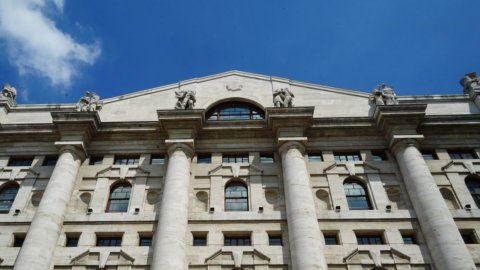2018 closed under the banner of market tensions. According to Congiunturaref, the analysis and forecasting periodical of the Ref Richerche centre, the origin of these tensions is a set of several factors: the consequences of the increase in interest rates, after the start of the "normalization" of monetary policies; the signs of a deceleration of the global economy; uncertainties about economic policies, also linked to the increase in political tensions in various countries.
The last weeks of the year have not seen an easing of stock market volatility. The legacy that the year passes on to 2019 is therefore not a positive one. Uncertainties about next year's trends also raise doubts about the choices of central banks. What was a foregone conclusion until a few weeks ago has suddenly become less clear, given the signs of a slowdown in the economy and the tightening of financial conditions at an international level. Even the inflation trends, after the recent fall in oil prices, seem to allow wait-and-see choices both in the US and in the euro area. In 2019 the phase of interest rate increases by the Fed should be completed. The ECB may not even be able to start the cycle of increases.
Bear market
Until a few months ago, the outlook for the economic situation in 2019 appeared moderately positive. Growth looked set to continue, and the prevailing assumption was that next year would see central banks attempting to normalize monetary policy. In particular, to strengthen the need to return to the extraordinary policies of the past few years, the first signs of a trend reversal in labor costs were also emerging. The acceleration in wages, barely hinted at at the moment, reflected the fall in unemployment in recent years, which was particularly pronounced especially in the United States; in the euro area, this trend was limited above all to Germany, where contract renewals were signed which will lead to relatively sustained wage increases also in 2019.
The launch after many years of a recovery phase in wages could have decreed, according to various commentators, the definitive exit from the risks of deflation which had long afflicted the advanced economies over the last ten years. In September Mario Draghi in his quarterly testimony to the European Parliament spoke of a "vigorous increase in core inflation in 2019". The scenario of normalization of monetary policies he contemplated three or four more rate hikes from the Fed during 2019, and the beginning of a phase of gradual increases also by the ECB, from the middle of next year. This well-defined picture has gradually begun to crumble, above all because the market's reaction to the increase in US rates has been heavy. The losses have continued in recent months, also because the expectation of a less accommodating monetary policy has been superimposed on a set of other adverse factors.
Read the integral analysis of Congiunturaref.





